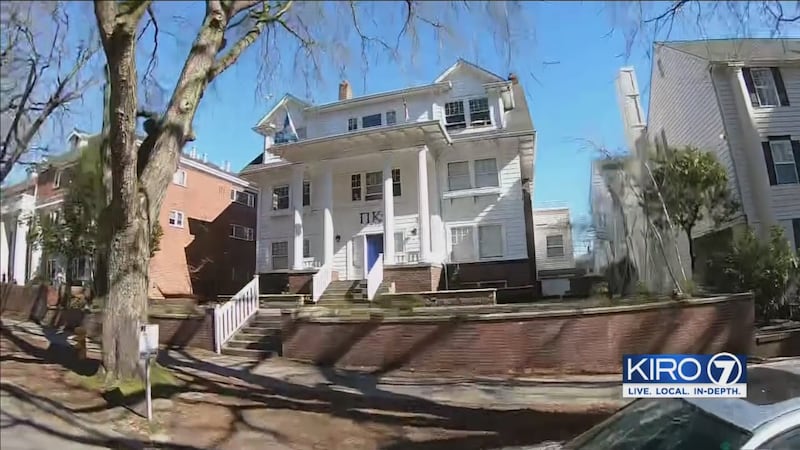SEATTLE — There will be spirited partying at the University of Washington -- without spirits. Fraternaties at the UW have banned hard liquor with more than 15 percent alcohol on campus properties.
“It’s definitely going to be a radically different change,” said Alex Nagode, a UW sophomore.
“It’s very surprising to me. Hard liquor is definitely a huge part of sorority and fraternity life on campus,” said Ellie Hurlbert, a UW senior.
The new policy bans alcohol above 15 percent -- basically, all hard liquors -- at chapter events and on chapter property.
“I think for the safety of the students and stuff and well being of everyone it's a good idea,” Nagode said.
There is an exception: if a third-party bartender is the one serving, monitoring consumption and age, hard liquor is still allowed.
This policy is coming from the North American Interfraternity Conference.
Scroll down to continue reading
More news from KIRO 7
- Missing 11-year-old girl found safe by Seattle Police
- State AG issues follow-up to sheriffs not enforcing I-1639
- Search underway for 4 suspects after home invasion in Renton
- NAS Whidbey helicopter crew rescues t wo men in separate snowmobile crashes
- Do you have an investigative story tip? Send us an email at investigate@kiro7.com
It says the reason for the ban is because, "Nearly all hazing and over-consumption deaths in the past two years have involved students consuming high-percentage alcohol beverages."
It's giving fraternities nationwide until Sep. 1st to comply.
UW decided to roll it out earl on January 1.
“We wanted to give our organizations time to really make a culture change. I don't believe in overnight compliance and I didn't really expect a lot of these organizations would be able to deal with such a culture change in time,” said Erik Johnson, president of UW’s Interfraternity Council (IFC), which is the student-run governing body of UW frats.
He said since they started the ban in January, they've already seen a difference
“We're seeing a lot less hard alcohol being served at chapter property and chapter events and we're really advocating for safer consumption of hard alcohol, regardless of what type it is,” Johnson said.
The new policy does have some students wondering if it could simply push drinking further behind closed doors?
“The more restriction there is, the more people want to push the limits. So I could see that as well, making it more of a problem than it is now,” said Victoria Melendrez, a UW senior.
UW's assistant director for alcohol and drug education, Jason Kilmer, says the impact of the new policy needs to be evaluated to see if it actually acheives the intended consequences.
“We want to make sure if hard alcohol restrictions are in place, do we see increase in other substance use, or is it even more consumption of other types of alcohol? Ideally, you're going to see the reduction in harm that students and NIC are rooting for,” said Kilmer, who is also an associate professor of psychiatry and behavioral sciences.
As far as enforcement, Johnson said there will be a lot of reliance from student leaders to report what they see, plus reports from campus police. He said consequences will vary on a case-by-base basis, but initially, consequences will primarily be educational in nature.
As the national deadline gets closer, consequences for violations will become stronger and will consider a frat’s disciplinary history, and could vary from fines to probation.
.@UW frats have banned hard liquor (above 15% alcohol) on campus properties. Fraternities nationwide will need to adopt the policy by Sept, but UW wanted a head start.
— Deedee Sun (@DeedeeKIRO7) March 6, 2019
Some students say - great idea! But others doubt it’ll make any impact.
Your thoughts?? 🤔@KIRO7Seattle pic.twitter.com/B4DeE0I8D5
Cox Media Group








